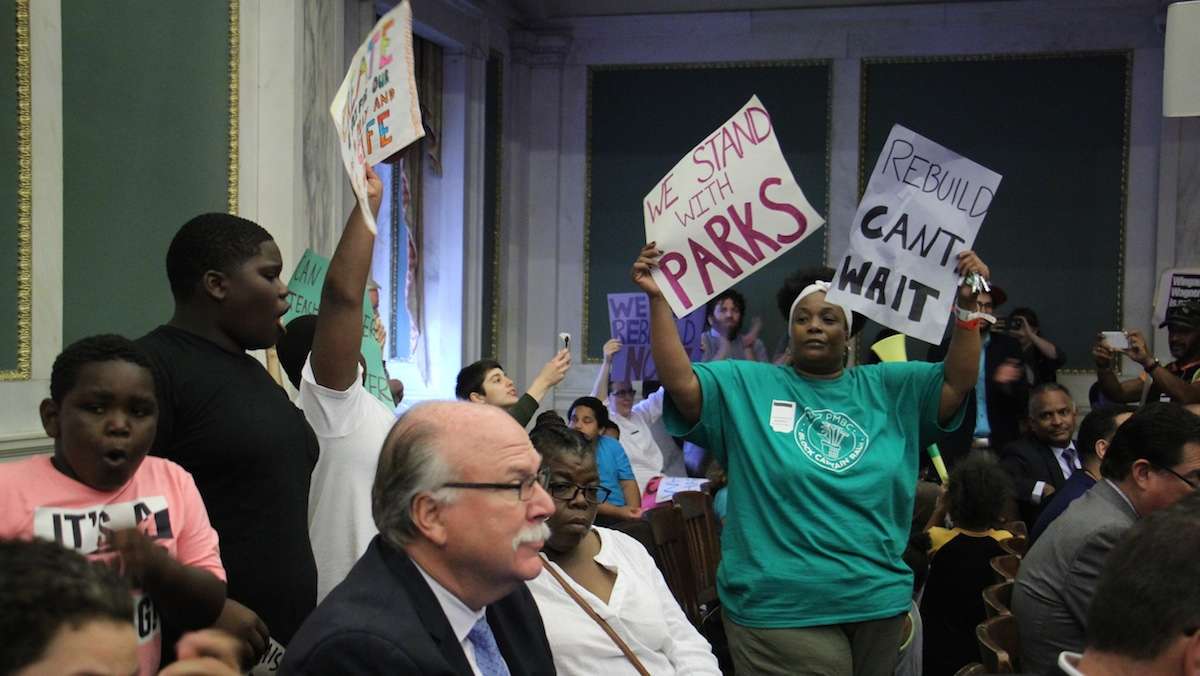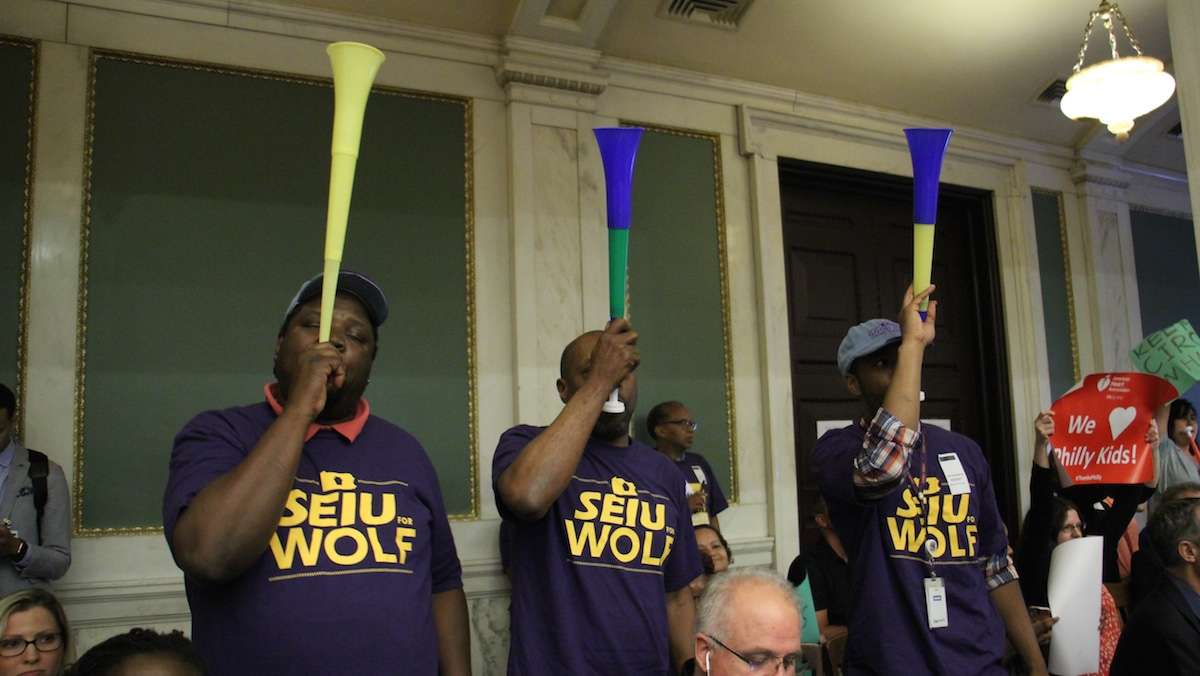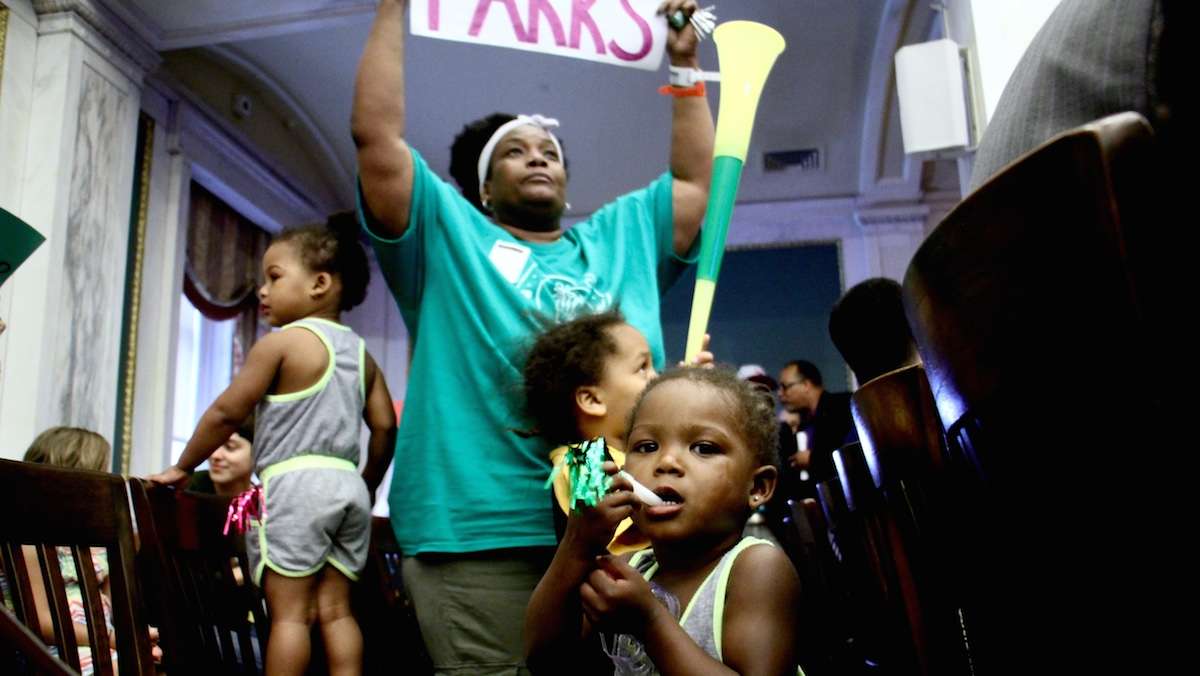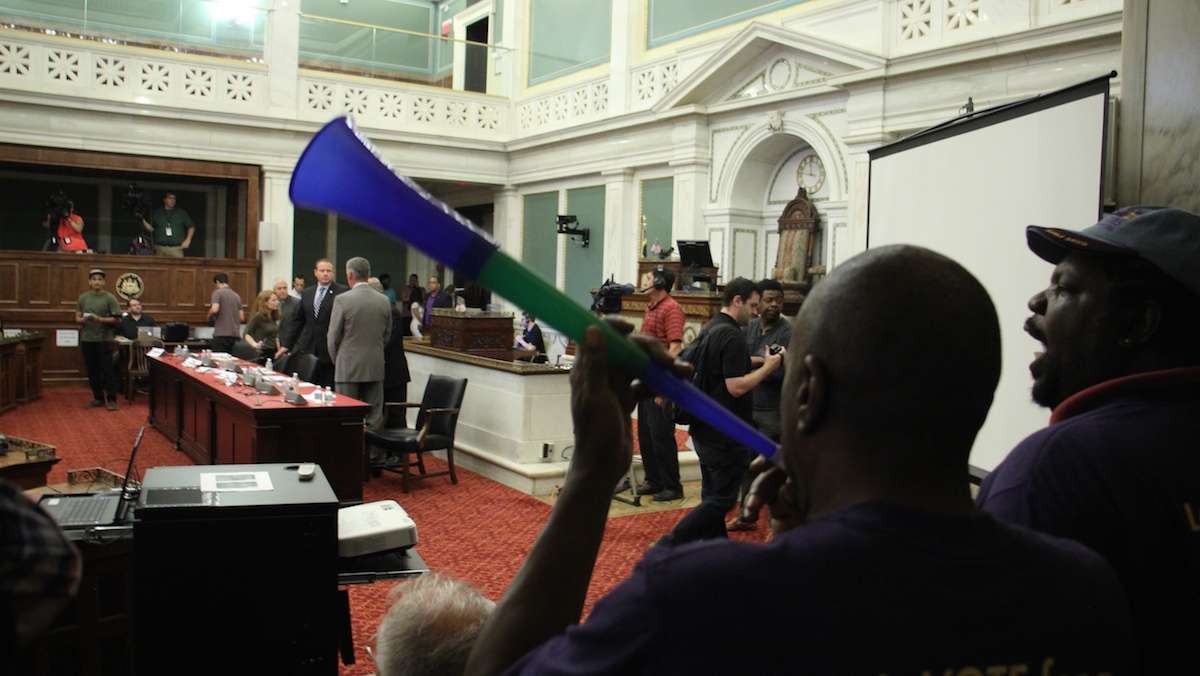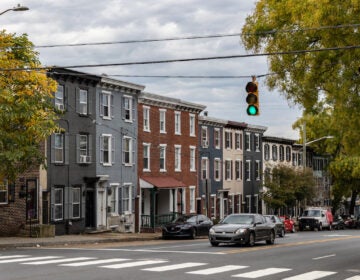Hecklers derail attempted hearing on Philly beverage tax
ListenTurns out it’s tough to conduct a public hearing when no one can hear you.
Pennsylvania Republican gubernatorial candidate Scott Wagner learned that the loud way Friday as he attempted to hold a meeting in Philadelphia’s City Council chambers on the city’s sweetened beverage tax.
His attempt was thwarted by a legion of horn-tooting, whistle-blowing, hand-clapping activists and union organizers who shouted him down from the gallery. Channeling the endurance of a South African soccer crowd, they kept a constant blare for 45 minutes. Eventually, Wagner and his colleagues on the state Senate’s local government committee left the room and held a private press conference to discuss the aural ambush.
Wagner said the meeting will be rescheduled and held in Harrisburg.
Friday’s ruckus added even more intrigue to a hearing laden with political undertones.
Wagner, a conservative state senator from York, is in the middle of a campaign to win his party’s nomination and unseat Gov. Tom Wolf, a Democrat.
His senate colleague, Democrat Anthony Williams, invited him to hold the hearing in Philadelphia — in the very same room where city lawmakers passed the new levy. Williams is a vocal opponent of the beverage tax and ran against its chief proponent, Jim Kenney, in the 2015 mayoral race.
Speakers list questioned
Councilwoman Helen Gym dismissed the hearing as a political sideshow.
“One of the very strange things about this hearing is that, so long after this tax, and in the middle of Scott Wagner’s run for governor, there’s a sudden interest to flex political muscle,” said Gym, who added that she wasn’t allowed to testify at the hearing despite attempts to get on the agenda.
Protesters argued the hearing was stacked in the soda lobby’s favor, noting there were just three pro-tax speakers on the agenda. Two soda-company representatives, six people associated with the grocery or restaurant industries, and one member of an anti-tax labor union were listed on the agenda.
Hecklers chanted “this is our house” and blew horns as senators waited to begin the hearing. At one point, Wagner waded into the audience to try and reason with protesters, but they appeared to ignore him.
“Unfortunately, we’ve gotten to this place in America where we can’t even say things that we have a different perspective on without having an argument,” said Williams in a press conference held afterward.
Eventually, lawmakers filed out of the council chambers. A group of men from the Service Employees International Union serenaded them with an impromptu version of “Na Na Hey Hey Kiss Him Goodbye” as they left.
Williams said the protest derailed a critical opportunity to discuss the beverage tax. He also suggested attempts to publicly humiliate his GOP colleagues would only hurt Philadelphia in the long term.
Tactics assailed
“They drive, then train,” Williams said, alluding to the Republican majorities in both state houses. “We should be smart enough and strategic enough to have our differences aired in public in a constructive way, so I can make a claim to Sen. Wagner, so I can make a claim to the other senators on this panel, that we need help in Philadelphia County.”
Wagner suggested Friday’s protests were indicative of the city’s dysfunction.
“This gives people across Pennsylvania an opportunity to see how difficult it is sometimes down here to get things done,” he said.
Williams said he invited two other Senate committees to hold a hearing in Philadelphia on the beverage tax, but Wagner was the first to accept his offer.
Tax supporters hail the 1.5-cent-per-ounce tax on sweetened beverages as a crucial revenue stream in the city’s quest to fix its recreation centers, expand pre-K, and create community schools that can serve as hubs for much-needed neighborhood services. Tax opponents deride the levy as a job killer that disproportionately hurts poor people because they can’t leave the city to buy cheaper beverages.
None of those arguments got a public hearing Friday.
At one point, Wagner called forward Paul J. Mather, the first speaker, in an attempt to slice through the mayhem. Mather, a Penn professor who heads the regional chapter of the American Heart Association, supports the beverage tax because of its potential health benefits.
“Chairman Wagner and the members of the committee, I wanted to thank you very much for the opportunity to come and speak to you today,” Mather said.
Soon after he began, the horns swelled and he fell silent.
WHYY is your source for fact-based, in-depth journalism and information. As a nonprofit organization, we rely on financial support from readers like you. Please give today.




